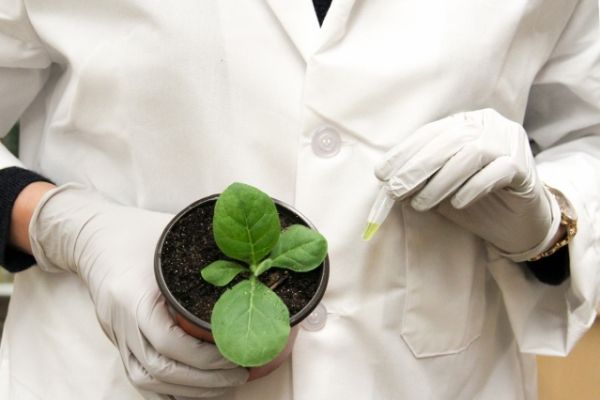As food demand rises due to growing and changing populations around the world, increasing crop production has been a vital target for agriculture and food systems researchers who are working to ensure there is enough food to meet global need in the coming years. One MIT research group mobilizing around this challenge is the Voigt lab in the Department of Biological Engineering, led by Christopher Voigt, the Daniel I.C. Wang Professor of Advanced Biotechnology at MIT.
For the past four years, the Abdul Latif Jameel Water and Food Systems Lab (J-WAFS) has funded Voigt with two J-WAFS Seed Grants. With this support, Voigt and his team are working on a significant and longstanding research challenge: transform cereal crops so they are able to fix their own nitrogen.
Chemical fertilizer: how it helps and hurts
Nitrogen is a key nutrient that enables plants to grow. Plants like legumes are able to provide their own through a symbiotic relationship with bacteria that are capable of fixing nitrogen from the air and putting it into the soil, which is then drawn up by the plants through their roots. Other types of crops — including major food crops such as corn, wheat, and rice — typically rely on added fertilizers for nitrogen, including manure, compost, and chemical fertilizers. Without these, the plants that grow are smaller and produce less grain.
Read more at Massachusetts Institute of Technology
Photo: The Voigt lab, which was funded by J-WAFS seed grants in 2015 and 2017, is working to bring the nitrogen-fixing capacity of legumes into engineered cereal crops. CREDIT: Lisa Miller/J-WAFS


